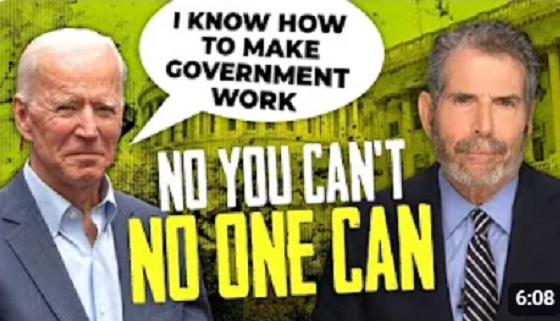Business
Canada ‘extremely concerned’ about fate of Line 5 pipeline in Wisconsin, embassy says
Canada’s embassy in Washington says it is “extremely concerned” about the fate of the Line 5 cross-border pipeline. This photo taken in October 2016 shows an aboveground section of Enbridge’s Line 5 at the Mackinaw City, Mich., pump station. THE CANADIAN PRESS/AP-John Flesher
By James McCarten in Washington
Canada’s embassy in Washington says it is “extremely concerned” about the fate of the Line 5 cross-border pipeline.
A court hearing Thursday in Wisconsin could determine whether the pipeline, owned and operated by Enbridge Inc., is allowed to continue operating.
“The energy security of both Canada and the United States would be directly impacted by a Line 5 closure,” the embassy said in a statement.
“At a time of heightened concern over energy security and supply, including during the energy transition, maintaining and protecting existing infrastructure should be a top priority.”
The Bad River Band of Lake Superior Chippewa says spring flooding has heightened the risk of a rupture and it wants a federal judge to shut the line down.
A strongly worded statement from the embassy says doing so would endanger more than 33,000 U.S. jobs and US$20 billion in economic activity.
Canada argues that Line 5 is a vital energy conduit across the U.S. Midwest and an economic lifeline for Alberta, Saskatchewan, Ontario and Quebec.
The Indigenous band fears a rupture would foul not only a key watershed on its territory, but also the waters of Lake Superior.
Canada has already invoked a 1977 pipelines treaty with the U.S. in both Wisconsin and Michigan, where Michigan’s attorney general is also in court trying to get the pipeline shut down.
Talks under that treaty have been ongoing for months, with the latest session taking place last month in Washington.
“Canada invoked the treaty’s dispute settlement provisions because actions to close Line 5 represent a violation of Canada’s rights under the treaty to an uninterrupted flow of hydrocarbons in transit,” the embassy said.
“If a shutdown were ordered because of this specific, temporary flood situation, Canada expects the United States to comply with its obligations under the 1977 Transit Pipelines Treaty, including the expeditious restoration of normal pipeline operations.”
Spring flooding has washed away significant portions of the riverbank where Line 5 intersects Wisconsin’s Bad River, a meandering, 120-kilometre course through Indigenous territory that feeds Lake Superior and a complex network of ecologically delicate wetlands.
The band has been in court with Enbridge since 2019 in an effort to compel the pipeline’s owner and operator to reroute Line 5 around its traditional territory — something the company has already agreed to do.
But the flooding has turned a theoretical risk into a very real one, the band argued in an emergency motion last week, and wants the pipeline closed off immediately to prevent catastrophe.
“There can be little doubt now that the small amount of remaining bank could be eroded and the pipeline undermined and breached in short order,” the band’s lawyers argued.
“Very little margin for error remains.”
Line 5 meets the river on Indigenous territory just past a location the court has come to know as the “meander,” where the riverbed snakes back and forth multiple times, separated from itself only by several metres of forest and the pipeline.
At four locations, the river was less than 4.6 metres from the pipeline — just 3.4 metres in one particular spot — and the erosion has continued in recent days at an “alarming” rate, the motion said.
In one case, so-called “monuments” installed to measure the losses show that where there was more than 10 metres of riverbank in early April before the flooding began, only 3.7 metres remained as of last Tuesday.
“Significant erosion is continuing as of the filing of this motion, and the evidence strongly suggests that further bank loss could be substantial and result in exposure and rupture of the pipeline.”
Wisconsin district court Judge William Conley will hear oral arguments on the motion Thursday. It’s not clear when he’ll decide whether to grant an injunction that would require Enbridge to shut down the pipeline and purge its contents.
Enbridge has described the motion as “truly outrageous” and unnecessary: “There is no pipeline safety issue and certainly no cause for alarm.”
This report by The Canadian Press was first published May 16, 2023.
Business
When politicians gamble, taxpayers lose

From the Canadian Taxpayers Federation
Author: Jay Goldberg
Trudeau and Ford bragged about how a $5 billion giveaway to Honda is going to generate 1,000 jobs. In case you’re thinking of doing the math, that’s $5 million per job.
Politicians are rolling the dice on the electric vehicle industry with your money.
If they bet wrong, and there’s a good chance they have, hardworking Canadians will be left holding the bag.
Prime Minister Justin Trudeau and Premier Doug Ford announced a $5-billion agreement with Honda, giving another Fortune 500 automaker a huge wad of taxpayer cash.
Then Trudeau released a video on social media bragging about “betting big” on the electric vehicle industry in Canada. The “betting” part of Trudeau’s statement tells you everything you need to know about why this is a big mistake.
Governments should never “bet” with taxpayer money. That’s the reality of corporate welfare: when governments give taxpayer money to corporations with few strings attached, everyday Canadians are left hoping and praying that politicians put the chips on the right numbers.
And these are huge bets.
When Trudeau and Ford announced this latest giveaway to Honda, the amount of taxpayer cash promised to the electric vehicle sector reached $57 billion. That’s more than the federal government plans to spend on health care this year.
Governments should never gamble with taxpayer money and there are at least three key reasons why this Honda deal is a mistake.
First, governments haven’t even proven themselves capable of tracking how many jobs are created through their corporate welfare schemes.
Trudeau and Ford bragged about how a $5 billion giveaway to Honda is going to generate 1,000 jobs. In case you’re thinking of doing the math, that’s $5 million per job.
Five million dollars per job is already outrageous. But some recent reporting from the Globe and Mail shows why corporate welfare in general is a terrible idea.
The feds don’t even have a proper mechanism for verifying if jobs are actually created after handing corporations buckets of taxpayer cash. So, while 1,000 jobs are promised through the Honda deal, the government isn’t capable of confirming whether those measly 1,000 jobs will materialize.
Second, betting on the electric vehicle industry comes with risk.
Trudeau and Ford gave the Ford Motor Company nearly $600 million to retool a plant in Oakville to build electric cars instead of gasoline powered ones back in 2020. But just weeks ago, Ford announced plans to delay the conversion for another three years, citing slumping electric vehicle sales.
Look into Ford’s quarterly reports and the danger of betting on electric vehicles becomes clear as day: Ford’s EV branch lost $1.3 billion in the first quarter of 2024. Reports also show Ford lost $130,000 on every electric vehicle sold.
The decline of electric vehicle demand isn’t limited to Ford. In the United States, electric vehicle sales fell by 7.3 per cent between the last quarter of 2023 and the first quarter of 2024.
Even Tesla’s sales were down 13 per cent in the first quarter of this year compared to the first quarter of 2023.
A Bloomberg headline from early April read “Tesla’s sales miss by the most ever in brutal blow for EVs.”
There’s certainly a risk in betting on electric vehicles right now.
Third, there’s the question of opportunity cost. Imagine what else our governments could be doing with $57 billion?
For about the same amount of money, the federal government could suspend the federal sales tax for an entire year. The feds could also use $57 billion to double health-care spending or build 57 new hospitals.
The solution for creating jobs isn’t to hand a select few companies buckets of cash just to lure them to Canada. Politicians should be focusing on creating the right environment for any company, large or small, to grow without a government handout.
To do that, Canada must be more competitive with lower business taxes, less red tape and more affordable energy. That’s a real recipe for success that doesn’t involve gambling with taxpayer cash.
It’s time for our politicians to kick their corporate welfare addiction. Until they do, Canadians will be left paying the price.
Business
WEF panelist suggests COVID response accustomed people to the idea of CBDCs

Central Bank of Bahrain governor Khalid Humaidan
From LifeSiteNews
When asked how he would convince people that CBDCs would be a trusted medium of exchange, Bahrain’s central bank governor said that COVID made the digital transformation ‘something of a requirement’ that had ‘very little resistance.’
Central bank digital currencies (CBDCs) will hopefully replace physical cash and become fully digital, a central banker tells the World Economic Forum (WEF).
Speaking at the WEF Special Meeting on Global Collaboration, Growth and Energy Development on Sunday, Central Bank of Bahrain governor Khalid Humaidan told the panel “Open Forum: The Digital Currencies’ Opportunity in the Middle East” that one of the goals of CBDC was to replace cash, at least in Bahrain, and to go “one hundred percent digital.”
Humaidan likened physical cash to being an antiquated “analogue” technology and that CBDC was the digital solution that would hopefully replace cash:
"We're probably going to stop calling it central bank digital currency [CBDC]. It's going to be a digital form of cash, and at some point in time hopefully we will be able to be 100% digital": Central Bank of Bahrain Governor Khalid Humaidan to the WEF https://t.co/Pspr0M1Uuq pic.twitter.com/N5aOkCpzh1
— Tim Hinchliffe (@TimHinchliffe) April 29, 2024
“I thank this panel and this opportunity. It forced me to refine my thoughts and opinions where I’m at a place comfortably now that I’m ready to verbalize what I think about CBDC,” said Humaidan.
If we think cash is the analogue and digital currency is the form of digital – CBDC is the digital form of cash – today, clearly we’re in a hybrid situation; we’re using both.
We know in the past when it comes to cash, central bankers were very much in control with all aspects of cash, and now we’re comfortable to the point where the private sector plays a big role in the printing of the cash, in the distribution of the cash, and with the private sector we use interest rates to manage the supply of cash.
The same thing is likely to happen with CBDC. Yes, the central bank will have a role, but at some point in time – the same way we don’t call it ‘central bank cash’ – we’re probably going to stop calling it central bank digital currency.
“It’s going to be a digital form of the cash, and at some point in time hopefully we will be able to be one hundred percent digital,” he added.
When asked how he would convince people that CBDC would be a trusted medium of exchange, Bahrain’s central bank governor said that people were already used to it and that COVID made the digital transformation “necessary” and “something of a requirement” that had “very little resistance.”
"There's less use of cash […] The transition to fully digital is not going to be a stretch […] People are used to it […] Its adoption rates increased because of COVID […] There is very little resistance": Central Bank of Bahrain Governor Khalid Humaidan to the WEF on CBDC pic.twitter.com/zB7nJAi48G
— Tim Hinchliffe (@TimHinchliffe) April 29, 2024
“Right now, many of our payments are digital. The truth is, I said that we’re in a hybrid model; there’s less and less use of cash,” said Humaidan.
I think from predominantly digital with a little physical, I think the transition to fully digital is not going to be a stretch.
People are used to it, people have engaged in it and certain circumstances did help. Its adoption rates increased because of COVID.
“This is where contactless started to become something of a necessity, something of safety, something of a requirement, and because of that there is very little resistance; trust is already there,” he added.
"Is it [digital euro] going to be as private as cash? No. A digital currency will never be as anonymous and as protecting of privacy in many respects as cash, which is why cash will always be around": Christine Lagarde, BIS Innovation Summit, March 2023 #CBDC pic.twitter.com/BLMVOPax6a
— Tim Hinchliffe (@TimHinchliffe) April 11, 2023
Meanwhile, European Central Bank president Christine Lagarde has been going around the world telling people that the digital euro CBDC would not eliminate cash, and that cash would always be an option.
Speaking at the Bank for International Settlements (BIS) Innovation Summit in March 2023, Lagarde said that a digital currency will never be as anonymous as cash, and for that reason, cash will always be around.
“Is it [digital euro] going to be as private as cash? No,” she said.
A digital currency will never be as anonymous and as protecting of privacy in many respects as cash, which is why cash will always be around.
If people want to use cash in some countries or in some transactions, cash should be available.
“A digital currency is an alternative, is another means of payment and will not provide exactly the same level of privacy and anonymity as cash, but will be pretty close in terms of complete neutrality in relation to the data,” she added.
A WEF Agenda blog post from September, 2017, lists the “gradual obsolescence of paper currency” as being “characteristic of a well-designed CBDC.”
"You could have a potentially […] darker world where the government decides that [CBDC] can be used to purchase some things, but not other things that it deems less desirable like say ammunition, or drugs, or pornography, or something of the sort": Eswar Prasad, WEF #AMNC23 pic.twitter.com/KkWgaEWAR5
— Tim Hinchliffe (@TimHinchliffe) June 28, 2023
Last year at the WEF’s 14th Annual Meeting of the New Champions, aka “Summer Davos,” in Tianjing, China, Cornell University professor Eswar Prasad said that “we are at the cusp of physical currency essentially disappearing,” and that programmable CBDCs could take us to either a better or much darker place.
“If you think about the benefits of digital money, there are huge potential gains,” said Prasad, adding, “It’s not just about digital forms of digital currency; you can have programmability – units of central bank currency with expiry dates.
You could have […] a potentially better – or some people might say a darker world – where the government decides that units of central bank money can be used to purchase some things, but not other things that it deems less desirable like say ammunition, or drugs, or pornography, or something of the sort, and that is very powerful in terms of the use of a CBDC, and I think also extremely dangerous to central banks.
The WEF’s Special Meeting on Global Collaboration, Growth and Energy Development took place from April 27-29 in Riyadh, Saudi Arabia.
“Saudi Arabia’s absolute monarchy restricts almost all political rights and civil liberties,” according to D.C.-based NGO Freedom House.
In the kingdom, “No officials at the national level are elected,” and “the regime relies on pervasive surveillance, the criminalization of dissent, appeals to sectarianism and ethnicity, and public spending supported by oil revenues to maintain power.”
Reprinted with permission from The Sociable.
-

 Education1 day ago
Education1 day agoSupport a young reader through the Tim Hortons Smile Cookie campaign
-

 Alberta2 days ago
Alberta2 days agoAlberta’s vision for passenger rail
-

 John Stossel2 days ago
John Stossel2 days agoWhy Biden’s Just Wrong: NO ONE “Knows How to Make Government Work.”
-

 Education2 days ago
Education2 days agoRebels earn Jim Donlevy Memorial Trophy as WHL Scholastic Team of the Year
-

 RCMP2 days ago
RCMP2 days agoRed Deer RCMP arrest two individuals following ramming of police vehicle
-

 Alberta2 days ago
Alberta2 days agoThree Calgary massage parlours linked to human trafficking investigation
-

 Business1 day ago
Business1 day agoWEF panelist suggests COVID response accustomed people to the idea of CBDCs
-

 COVID-192 days ago
COVID-192 days agoStates move to oppose WHO’s ‘pandemic treaty,’ assert states’ rights







